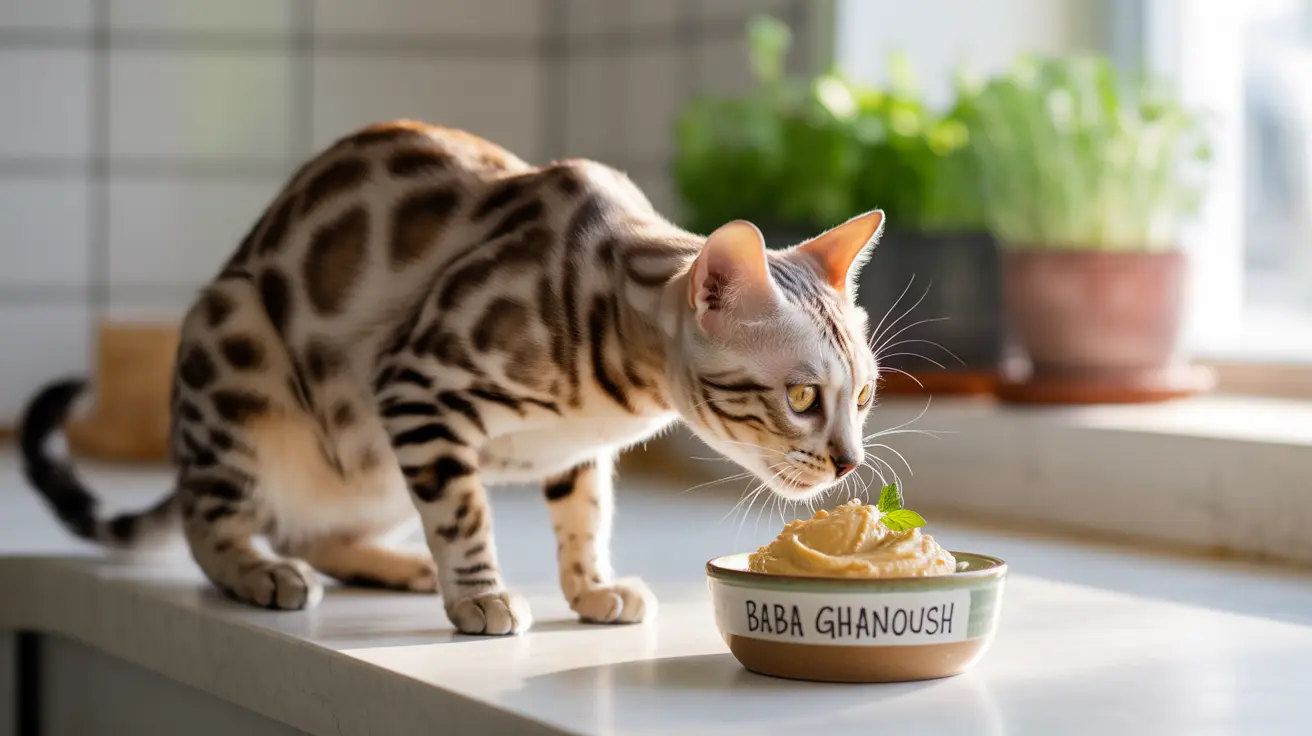If you're enjoying a Mediterranean snack and wondering whether to share with your feline friend, you might be asking "can cats have hummus?" The short answer is no - hummus is not safe for cats to eat. While your cat might show interest in this popular dip, several ingredients commonly found in hummus can be harmful or even toxic to your pet.
Understanding why hummus isn't suitable for cats requires looking at both its ingredients and how a cat's digestive system differs from ours. Let's explore the risks and what you need to know to keep your furry friend safe.
The Dangerous Ingredients in Hummus
Traditional hummus contains several ingredients that can be harmful to cats:
Garlic and Onion: Serious Toxicity Risks
Most hummus recipes include garlic, which is highly toxic to cats. Even small amounts can cause Heinz body anemia, a serious condition where red blood cells are damaged. Symptoms can take several days to appear, making it particularly dangerous.
Lemon Juice and Citrus Concerns
The citrus in hummus, usually from lemon juice, contains compounds that are toxic to cats. These can cause digestive upset, depression, and skin sensitivity in cats who consume them.
Tahini and Fat Content
While not toxic, the sesame paste (tahini) in hummus is high in fat, which can lead to digestive issues and potentially contribute to feline obesity or pancreatitis.
Why Cats Can't Properly Digest Hummus
Cats are obligate carnivores, meaning their bodies are designed to process meat, not plant-based foods like chickpeas. Their digestive systems lack certain enzymes needed to properly break down plant proteins and complex carbohydrates.
Even the base ingredient of hummus - chickpeas - can cause problems:
- Difficult to digest
- May cause bloating and gas
- Offers no nutritional benefit
- Can lead to stomach upset
Health Risks and Warning Signs
If your cat manages to eat hummus, watch for these symptoms:
- Vomiting or diarrhea
- Lethargy
- Loss of appetite
- Pale gums (if garlic toxicity occurs)
- Weakness or collapse
- Rapid breathing
If you notice any of these signs, contact your veterinarian immediately, especially if the hummus contained garlic or lemon.
Safe Alternatives for Cats
Instead of hummus, consider these vet-approved human foods as occasional treats:
- Plain cooked chicken or turkey
- Small pieces of cooked fish
- Plain cooked egg
- Tiny bits of cooked lean beef
- Small amounts of plain pumpkin (for fiber)
Frequently Asked Questions
Is it safe to feed my cat hummus or any dish containing garlic and lemon?
No, it's never safe to feed cats hummus, especially varieties containing garlic or lemon. These ingredients are toxic to cats and can cause serious health problems, including potentially fatal anemia.
What symptoms should I watch for if my cat accidentally eats hummus with toxic ingredients?
Watch for vomiting, diarrhea, lethargy, pale gums, weakness, rapid breathing, and loss of appetite. If you notice any of these symptoms, contact your veterinarian immediately.
Why are chickpeas and tahini in hummus not suitable for a cat's diet?
Cats are obligate carnivores whose digestive systems are designed for meat, not plant-based foods. Chickpeas are difficult for cats to digest, while tahini's high fat content can cause digestive issues and contribute to obesity.
How can feeding hummus to cats affect their digestive system and overall health?
Hummus can cause immediate digestive upset, including vomiting and diarrhea. Long-term risks include nutritional deficiencies, obesity from high fat content, and serious health complications from toxic ingredients like garlic.
What are some safe human foods I can give my cat instead of hummus?
Safe alternatives include plain cooked meats (chicken, turkey, fish), small amounts of cooked egg, and tiny portions of plain pumpkin. Always introduce new foods gradually and in small amounts.
Remember, while it's tempting to share our favorite foods with our pets, the safest approach is to stick to a balanced, veterinary-approved cat food diet with occasional vet-approved treats specifically made for felines.






